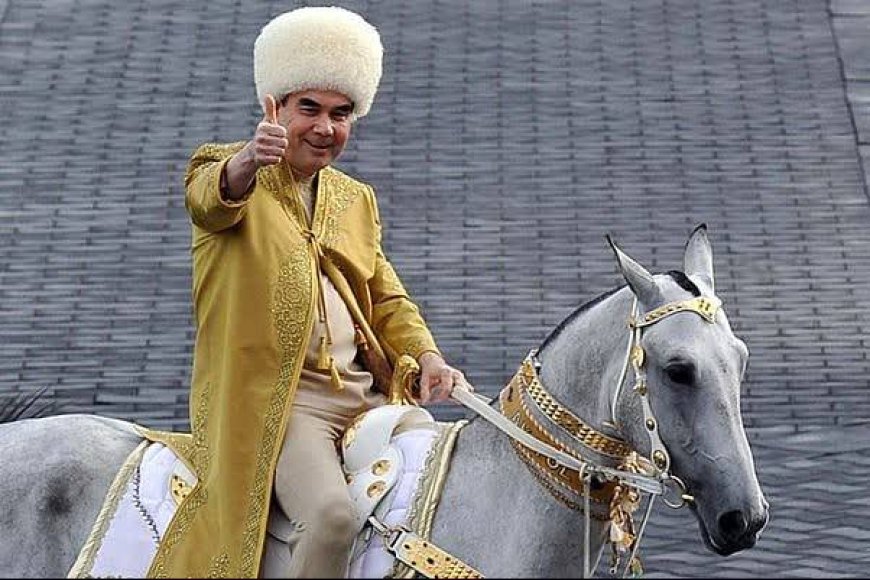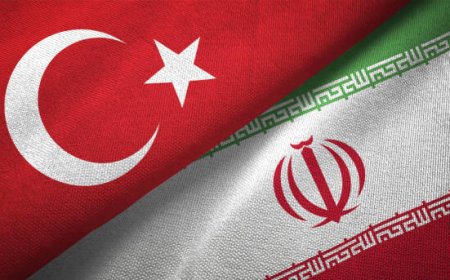Worse than North Korea? A look at the shocking social life in Turkmenistan
Worse than North Korea? A look at the shocking social life in Turkmenistan

When studying the geopolitical landscape of Central Asia, one cannot ignore Turkmenistan, a predominantly Muslim nation bordered to the north by Kazakhstan and Uzbekistan and to the south by Afghanistan and Iran. Located on the western shores of the Caspian Sea, Turkmenistan also shares a maritime border with the Republic of Azerbaijan and the Russian Federation.
Turkmenistan's strategic location has significant implications for regional politics and underscores the importance of understanding the complex dynamics at play in this part of the world.
Following the collapse of the USSR, Turkmenistan emerged as an independent nation in 1991, with Saparmurat Niyazov assuming the mantle of its first president. In analysing Turkmenistan's political scene, it can be observed that while the constitution outlines a democratic model of government with a free electoral process to select the head of state, the reality on the ground suggests a de facto one-party dictatorship.
In a striking display of executive power, the President of Turkmenistan wields complete control over all laws within the country. This has resulted in Turkmenistan's ranking as the sixth country on the global list of worst democracies, and it is also regarded as the poorest democracy among the nations that gained independence from the former Soviet Union.
In a recent move that has raised eyebrows, the government of Turkmenistan has passed a controversial law that grants political immunity and various other perks to the country's former president, Gurbanguly Berdimuhamedow, as well as his family members. Additionally, he has been granted the status of a perpetual member of the People's Expediency Council of Turkmenistan. Many observers believe that the law is a clear indication of the government's unwavering support for the cult of personality by enacting clauses that guarantee Berdimuhamedow's illegitimate privileges and preserve his demigod image in the eyes of Turkmen citizens.
Moreover, Berdimuhamedow and his relatives have been provided with a range of free luxuries, including sumptuous mansions, and foreign travel. This has been accompanied by financial assistance from government agencies. According to the legal provisions, any activities that defame the former president of Turkmenistan or breach the established norms will be prosecuted under the law. It is important to highlight that despite the numerous advantages enjoyed by the current administration of Turkmenistan, the standard of living for the majority of the population is deplorable.
Despite having the fourth-largest gas reserves worldwide, Turkmenistan's population continues to suffer from impoverishment, rendering it one of the poorest nations in terms of resource management and equal distribution of wealth. Today, Turkmen citizens keep struggling with the absence of social liberties and media restrictions. The so-called "Law of the Republic of Turkmenistan on Press and Other Media" is an ostensible piece of legislation that has been enacted in the country and allegedly aims for a democratic society, promising protection against censorship, upholding the right to free access to information, and shielding the press from government intervention. However, in reality, the media outlets in Turkmenistan completely operate within the confines of the regime and uphold the values of its leaders.
The president of Turkmenistan has purportedly established a censorship committee aimed at censoring a broad spectrum of artistic expressions, such as literature, theatre, and cinema. In a society where the government holds a tight grip on information dissemination, it appears that non-government publications are nonexistent. Furthermore, it seems that the government exercises strict control over the contents of their publications, as they are subjected to review by government representatives prior to publication.
In the previous administration, the internet was only accessible within government offices. However, under the current leadership, the internet has been extended to the general public, albeit with stringent filtering measures in place.
In Turkmenistan, independent journalists do not have freedom of activity. The communication devices, including landlines and mobile phones, of individuals who engage in communication with foreign radio and television, regardless of whether they are ordinary citizens or professional journalists, are disconnected. The decision has been met with overwhelming criticism as an infringement on freedom of speech and expression.
Additionally, the family members of independent journalists and political dissidents are systematically subjected to harassment. It must be added that Turkmenistan's position in the 2021 Reporters Without Borders [Reporters Sans Frontières (RSF)] ranking was 178th out of 180 countries. Turkmenistan received 80.03 points, which is 5.41 points less than in 2020. In this classification, lower scores indicate greater press freedom for journalists.
As we delve into the intricate social fabric of Turkmenistan, we are confronted with a startling reality that is sure to leave many in disbelief. The social life of this Central Asian nation is nothing short of shocking, with a myriad of draconian and capricious laws that are unique to this country, such as restrictions on women's driving and haircuts, prohibitions on young individuals wearing beards, and other practises that are considered absolutely normal.













































